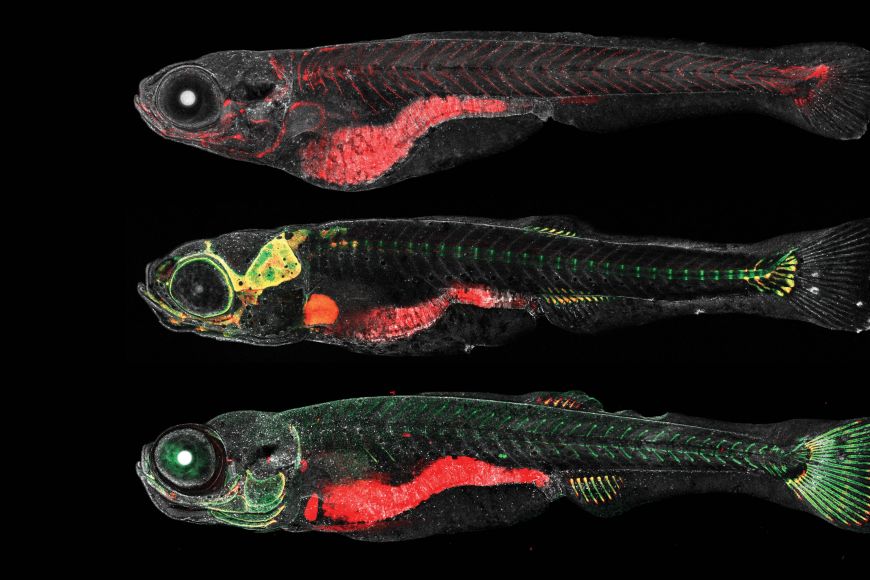The successful scientists from Masaryk University are biologist Peter Fabian from the Faculty of Science and structural biologist Petr Těšina, who works at the Central European Institute of Technology CEITEC MUNI. An individual grant of up to €1.5 million will allow each of them to form their own research team and pursue ambitious research over the next five years.
“After being ranked 400th in the world in the QS World University Rankings and defending its position in the top five hundred in Shanghai Academic Ranking of World Universities, this is another excellent news for Masaryk University this summer. I congratulate both researchers from the bottom of my heart. It is a great achievement, because ERC Grants are a prestigious and highly competitive award, in which only the best succeed in the tough international competition,” said Rector Martin Bareš, praising the winners of the 12th and 13th ERC Grants in the history of Masaryk University.
In total, young scientists from all over the world submitted 2,696 applications, with a success rate of 14.8%. Support was awarded to 110 submissions in the fields of natural sciences, 173 in the physical sciences and engineering, and 117 in the social sciences and humanities. The ERC Starting Grant will eventually go to 24 countries worldwide.
“We at Masaryk University have been striving for a long time to attract top scientists with excellent potential, because part of our strategic goal is to be a leading institution of Czech higher learning, science and research with a long-term vision to rank among the best universities in the world. For this reason, we also support our current and newly arrived scientists and researchers through the Grant Agency of Masaryk University (GAMU), for example through “MASH” – MUNI Award in Science and Humanities – so that they are motivated to work for Masaryk University and produce exceptional scientific results in the long term,” said Šárka Pospíšilová, Vice-Rector for Research and Doctoral Studies.
Peter Fabian joined the Department of Experimental Biology (Section of Animal Physiology and Immunology) at the MU Faculty of Science in the autumn of 2022. This year, as only the third scientist outside the USA, he received the Chi-Bin Chien Award 2023 for his outstanding scientific work in the field of developmental biology using the zebrafish as a model organism. Dr Fabian is a developmental biology researcher focusing on understanding the processes that underlie embryonic development and ensure proper function of the organs of vertebrates, and he studies disruptions to these processes with implications for human health. A major goal of his research is to understand the role of stem cells in maintaining tissue metabolism, and to study the mechanisms of the various cell types that help to form and maintain function of complex organs in the bodies of vertebrates. He was successful in the ERC Starting Grant competition with a project to study an entirely new cell type that plays a key role in maintaining skeletal stem cell homeostasis and metabolism, thereby ensuring proper bone regeneration. Again, the research will be conducted in the zebrafish model using state-of-the-art genomic, genetic and high-resolution imaging methods.

”We are very pleased that we have managed to bring Dr Fabian and his ambitious research to the Faculty of Science of Masaryk University. Winning such a prestigious grant is proof for us that our staff and infrastructure policy and subsequent focus on project support is the right way to go. I believe that Peter Fabian’s projects will generate many local synergies and will further increase the attractiveness of our Institute and Faculty for young talented researchers,” said Vítězslav Bryja, Director of the Department of Experimental Biology at MU Faculty of Science.
The second recipient of the ERC Starting Grant, who joined the CEITEC Institute of Masaryk University in July 2023, is Petr Těšina, a highly qualified structural biologist with extensive research experience. His research projects under the guidance of renowned scientist Professor Roland Beckmann have been instrumental in advancing the understanding of translational processes. Petr Těšina’s grant project will help to understand how cells respond to challenges during the translation process. Thanks to the cryo-electron microscopy technology available at CEITEC MUNI, Petr Těšina will be able to resolve the details of the structure of ribosome complexes inside human cells.
“I congratulate Petr on his ERC Starting Grant and look forward to supporting him as he continues to work on important scientific projects. I am convinced that Petr will not only establish an outstanding research group, but also contribute his extensive international experience to make our Institute better,” said CEITEC MUNI Director Pavel Plevka, who is also one of the few scientists to have received multiple ERC grants.
The main goal of Dr Těšina’s project is to understand how ribosome-related quality control (RQC) works in humans. Errors that occur in this process lead to the production of defective proteins that cause various cellular problems and diseases, especially in nervous tissue. “I want to investigate how and why mutations in ribosome-related quality control factors lead to neurodegeneration. I plan to uncover the underlying mechanisms that link these mutations to health problems,” explains Petr Těšina, who has already studied this process in yeast cells. He will now focus on studying the same process in human cells and try to find out how defects in RQC are linked to neurological disorders.
